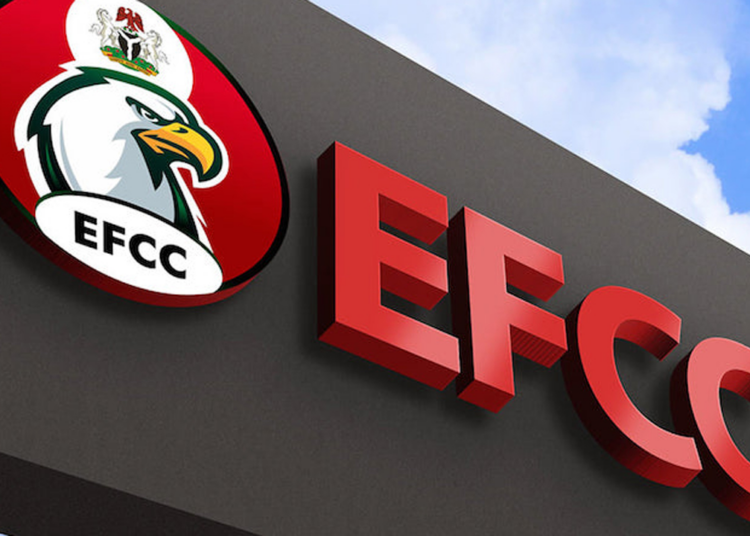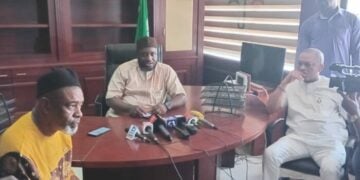Activities of illegal miners and the effects of illegal mining on the nation’s economy took the centre stage during a training programme on financial reporting organised for journalists Ilorin, Kwara State by the Economic and Financial Crimes Commission (EFCC).
The one- day intensive training programme was held on Thursday at the headquarters of the Ilorin Zonal Command of the EFCC.
In his address, the acting chairman, EFCC, Mr Abdulkarim Chukkol said that the activities of illegal mining operators in Kwara state are posing grave threat to local and national economy.
He said that all hands must be on deck to checkmate the menace.
Chukkol, whose address was delivered by the Ilorin Zonal Commander of the EFCC, Michael Nzekwe, stated that, “in the Kwara State environment, the activities of illegal solid mineral operators pose grave threat to the local and national economy, through non- payment of royalties, taxes and other dues”.
He, however, expressed the confidence in the competence of the commission to tackle the menace head-on. According to him, “the commission has been active in tackling their criminalities and will continue to ensure that extant laws against illegal miners are enforced.”
The EFCC boss commended the media for collaborating with the agency in its fight against economic and financial crimes, adding that the engagement provided an opportunity to interface with faces behind the news.
“This meeting evokes fresh consciousness of the critical and sacrificial roles of the media in nation building. Besides, an interaction like this offers a rare opportunity to see the faces behind the news we read in newspapers and social media; watch on television or listen to on radio”, he said.
While charging the media on professionalism, Chukkol said: “Journalists, all over the world, are undoubtedly chroniclers of history and generation-builders. The media has always been the mirror and monitor of other arms of government.
He particularly expressed delight over the synergy between the media and the EFCC saying, “the media has proven to be an important stakeholder, showcasing our activities and offering critical reviews that are germane to systems improvement.”
The commission’s spokesperson, Wilson Uwujaren in his remarks appreciated the media for being good partners in the fight against corruption and urged them to always abide by the ethics of the job.
He said the programme was part of the Commission’s efforts to build the capacity of men of the pen profession and enhance their reportage of corruption cases.
In his presentation titled “New Trends in Cybercrimes: How Not to Become A Victim”,Mr Alex Ocheme of the Operations Department of the commission put the damages done by cybercrimes globally at 8 trillion dollars.
He gave vivid descriptions of the typologies of cybercrimes across the world and exposed deep working secrets of hackers, urging participants to always use strong passwords.
“There is no system hackers cannot tamper with. What is important is for individuals and organisations to be vigilant and keep codes of their systems secret”, Ocheme said.
He urged the participants to be wary of unsolicited messages they received via social media platforms and avoid posting sensitive information on social media to avoid danger, adding that there are ways to verify the authenticity of the information.
In his presentation titled, “Investigative Journalism and Nigeria’s Fight against Money Laundering”, an assistant director, Media and Publicity at EFCC, Mr Dele Oyewale, at the Commission’s admonished journalists to put extra efforts by having multiple sources in their reportage so as to maintain the credibility of the profession.
He said: “An investigative journalist is the one who stands out among other journalists; one who does not engage in armchair journalism; one who does not engage in cut and paste journalism or ‘brown envelope’ journalism; but instead, engages in deep, extensive, in-depth and serious research into issues of corruption, while also exposing such corrupt practices.”
Oyewale lamented that investigative reporting in Nigeria is minimal saying. “Corruption reporting, drug trafficking reporting, social injustice reporting, environmental pollution reporting, justice miscarriage, crime reporting are scarcely investigative.”
He challenged members of the fourth estate of the realm to shrug off excuses and fears and do more of investigative reports that can assist the Commission in the investigation of the hitherto hidden corruption cases.
An assistant director in the Legal and Prosecution Department at the agency’s head office, Abuja, Larry Peters took participants through the “New Money Laundering Laws in Relation to Activities of Designated Non-Financial Businesses and Professions”, urging stakeholders to always play by the rules.





